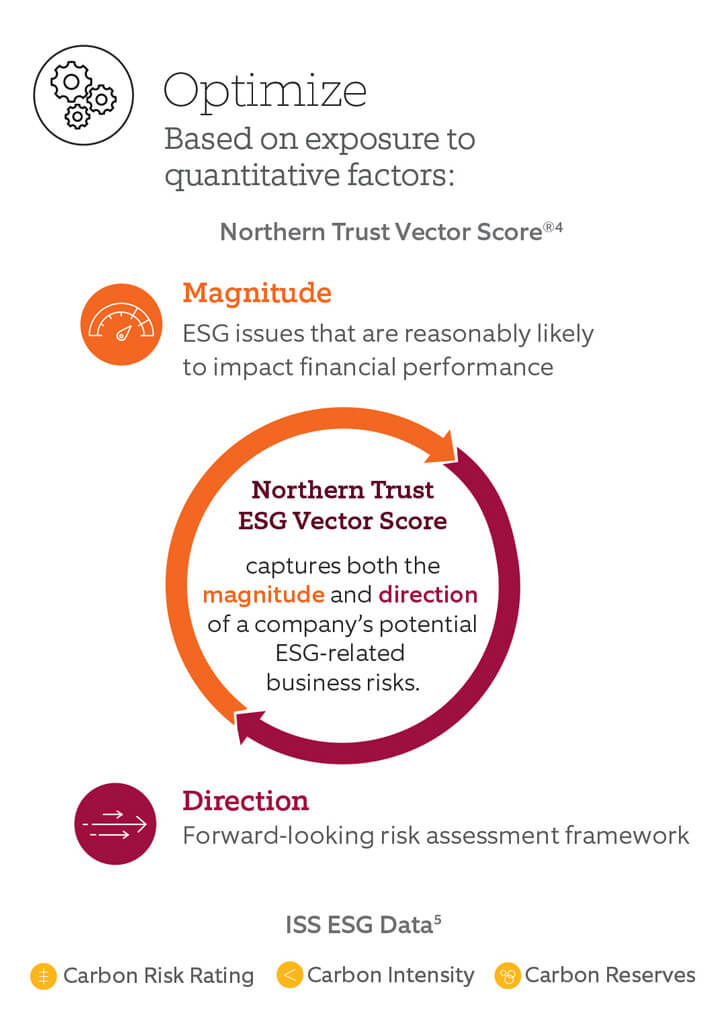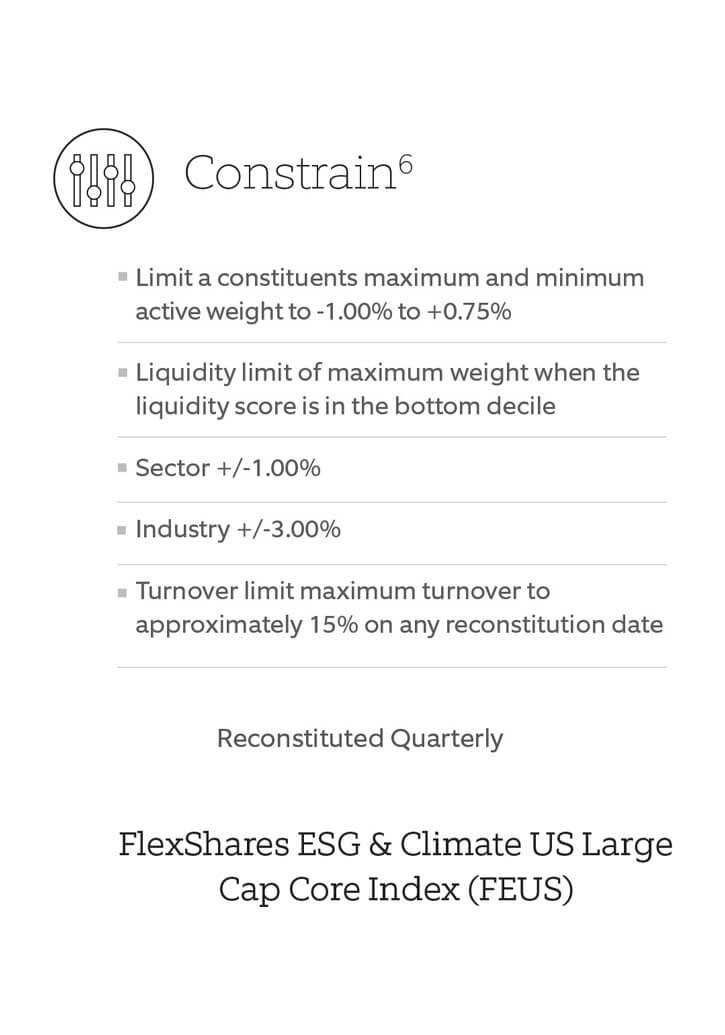Before investing, carefully consider the FlexShares investment objectives, risks, charges and expenses. This and other information is in the prospectus and a summary prospectus, copies of which may be obtained on this website. Read the prospectus carefully before you invest. Foreside Fund Services, LLC, distributor.
An investment in FlexShares is subject to numerous risks, including possible loss of principal. Fund returns may not match the return of the respective indexes. The Funds are subject to the following principal risks: asset class; authorized participant, calculation methodology; commodity; concentration; counterparty; currency; derivatives; dividend; emerging markets; Environmental, Social, Governance (ESG); equity securities; financial sector, fluctuation of yield; foreign securities; geographic; high portfolio turnover; income; industry concentration; inflation; infrastructure-related companies; interest rate; issuer; liquidity; large cap; management; market; market trading; mid cap stock; MLP; momentum; natural resources; new funds; non-diversification; passive investment; privatization; securities lending; small cap stock; tracking error; value investing; and volatility risk. A full description of risks is in the prospectus.
Individual investors should contact their financial advisor or broker dealer representative for more information on FlexShares ETFs. FlexShares ETFs are managed by Northern Trust.
Investment Products and Services are:
Not FDIC INSURED May lose value No bank guarantee
All registered investment companies, including FlexShares, are obliged to distribute portfolio gains to shareholders at year-end regardless of performance. Trading FlexShares Funds will also generate tax consequences and transaction expenses. The information provided is not intended to be tax advice. Tax consequences of dividend distributions may vary by individual taxpayer.
The FlexShares Funds, registered with the United States Securities and Exchange Commission under the Investment Company Act of 1940 ("Funds") are distributed by Foreside Fund Services, LLC, not affiliated with Northern Trust.


